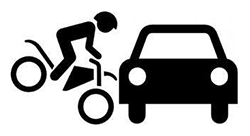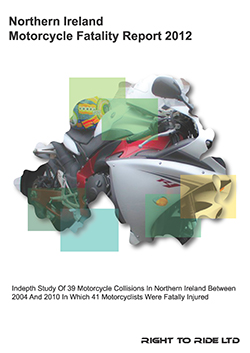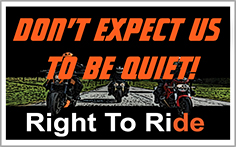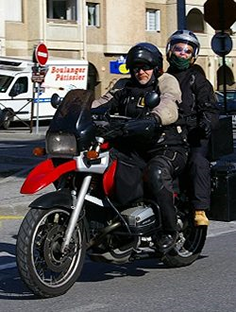 England: From Kevin Williams at Survival Skills, a report on the National Bike Safety Seminar at the Hertfordshire Fire & Rescue Service’s Training & Development Centre in Stevenage, Hertfordshire in England.
England: From Kevin Williams at Survival Skills, a report on the National Bike Safety Seminar at the Hertfordshire Fire & Rescue Service’s Training & Development Centre in Stevenage, Hertfordshire in England.
The event was a one-day free workshop organised by Tony Smith, road safety coordinator for Hertfordshire Fire & Rescue Service and was an opportunity for road safety professionals to share best practice and improve strategies to improve the safety of riders.
Two paragraphs from Kevin’s article are prominent:
“No-one seemed to have a central theory for why motorcyclists crash, there’s no clearing house for relevant information to be disseminated by those who believe they have answers and looked up by those who are looking for them, and the interventions to me mostly seem like well-meaning but ultimately futile attempts to prod or band-aid the problem and see if it will go away or clear up on its own.”
 “The idea that the answer is ‘more training’ seemed to be a all-pervasive one, yet no-one seems to have identified that it’s not training riders well that prevents them crashing, it’s training them to avoid crashing which matters, and that is a totally different task.
“The idea that the answer is ‘more training’ seemed to be a all-pervasive one, yet no-one seems to have identified that it’s not training riders well that prevents them crashing, it’s training them to avoid crashing which matters, and that is a totally different task.
Getting them to understand where, when, why and how they are likely to crash is the important point.
You can look down the road as hard as you like but if you don’t recognise the developing situation for what it is, understand just how it’s going to affect you in a few seconds time and have some idea what you can do about it, the chances of an appropriate response are near-zero because you WILL be caught by surprise.”
These mirror what was said in our NI Motorcycle Fatality Report 2012 by Elaine Hardy, PhD: “According to the participants of the focus group, the best solution to avoid road traffic collisions is anticipation and hazard awareness.”
“The consensus was that the only reliable way to prevent motorcyclist injuries and deaths is to prevent the collision in the first place, which means the rider needs to get his/her eyes up and scanning ahead, taking evasive action when a potential collision is still several seconds from happening.”
There was also an issue with, “Panic braking by motorcyclists was an important factor in the cause of the fatalities.”
How does this “get into” training and influence future reports so that it becomes informed knowledge and no surprise?
Original Source: Survival Skills – Facebook – Click Here
Leave Comments On Right To Ride EU – Click Here
Information
Survival Skills Rider Training is dedicated to improving motorcycle rider skills in the UK Since 1996, we’ve trained hundreds of riders of all standards from newly qualified to police licence holders, from IAM to RoSPA, from Harleys to Hondas.
Survival Skills is a motorcycle training school run by BTEC-qualified advanced instructor and DSA-certificated CBT and DAS instructor Kevin Williams. Kevin is also a qualified ‘e-tutor’, with an NVQ in delivering training via distance learning.
With over 30 years of professional riding experience Survival Skills specialises in post-test, advanced & online motorcycle rider training to instruct riders of all ages and abilities.Survival Skills provides a wide range of practical motorcycle training courses from convenient locations in England, Wales and Northern France, as well as distance learning options and free rider resources.
Their aim is to offer a practical training course that’s differentiated from standard Roadcraft-based “defensive riding” training, focussing instead on Risk Assessment and Risk Management techniques to really understand the concept of hazards and how to cope with them and still enjoy motorcycling.
Winners of a Prince Michael of Kent International Road Safety Award as part of the ‘Biker Down’ team in 2012 with Kent Fire & Rescue Service!
Website – www.survivalskills.co.uk
On Facebook – Click Here
Right To Ride – NI Motorcycle Fatality Report 2012 – Click Here


